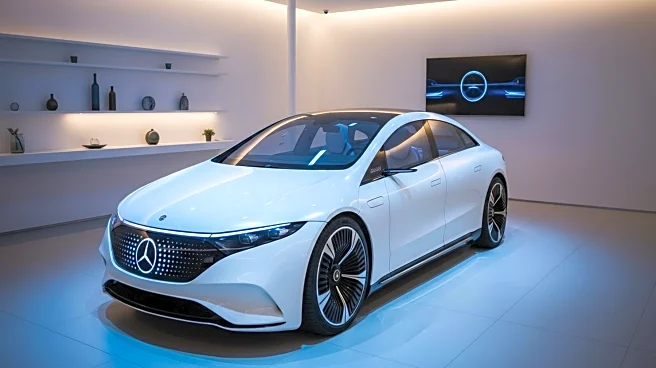What's Happening?
Mercedes is planning to introduce a new entry-level car due in late 2026, which will be the most affordable car with Mercedes roots, but it will only be offered as an EV and has little chance of making it to North America. The company has also extended the life cycle of its entry-level A-Class in Europe until 2028. This decision comes as Mercedes aims to bridge the price gap between its A-Class and the new electric CLA, with the latter being significantly more expensive. The move reflects Mercedes' strategy to maintain a presence in the entry-level market, which has been a successful formula for premium brands like BMW and Audi.
Why It's Important?
The introduction of a new entry-level electric vehicle by Mercedes signifies a strategic shift towards electrification, aligning with broader industry trends. This move is crucial for Mercedes to remain competitive in the affordable luxury segment, especially as competitors like BMW and Audi continue to offer entry-level models. The decision to extend the A-Class lifecycle in Europe highlights the strong demand for affordable luxury vehicles, which could influence market dynamics and consumer preferences. However, the exclusion of North America from this plan suggests regional market differences in EV adoption and consumer demand.
What's Next?
Mercedes' strategy to introduce a new entry-level EV and extend the A-Class lifecycle could lead to increased competition in the European market, potentially prompting other automakers to adjust their offerings. The focus on electrification may also drive advancements in EV technology and infrastructure, influencing future product development and market strategies. As Mercedes navigates this transition, stakeholders will be watching for further announcements regarding the specifics of the new model and its impact on the brand's overall market positioning.
Beyond the Headlines
The decision to focus on electric vehicles for entry-level models reflects broader environmental and regulatory pressures on automakers to reduce emissions. This shift could have long-term implications for Mercedes' brand identity and consumer perceptions, as well as influence industry standards for affordable luxury EVs. Additionally, the partnership with Geely for the Smart brand highlights the growing importance of international collaborations in the automotive industry.









